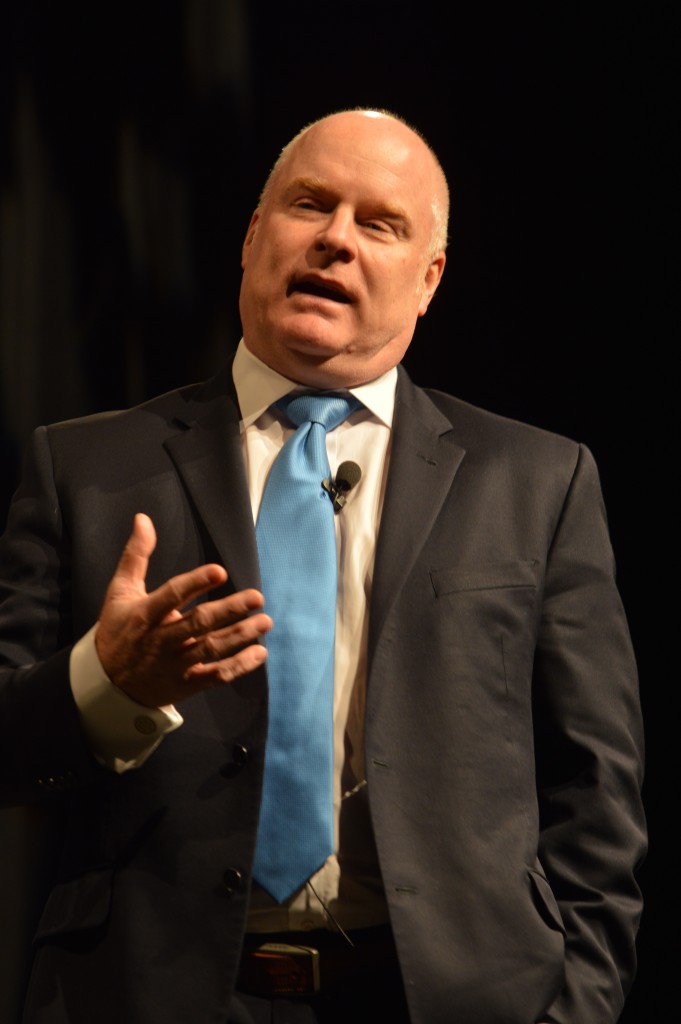
Scott Moore, one of the top guns in live sports coverage in Canada, shared his tricks of the trade during his presentation at the Algonquin Commons Theatre.
The head of production at Rogers Sportsnet, Moore attracted a swarm of television broadcasting students on Jan. 15.
During his presentation, Moore outlined Rogers’ $5.2-billion deal for exclusive telecom rights to all NHL games. After the deal was signed last November, Sportsnet moved past its competitor, TSN, and became the number one sports media brand in Canada.
Although Moore was at the forefront of the negotiation, he seemed to have left his big corporation entity somewhere between Toronto and Ottawa. Instead, he took to Algonquin’s stage as an ordinary man with an extraordinary repertoire of life stories.
There was a time, Moore told his audience, when few thought that an all-sports channel would even survive. But today Sportsnet boasts of seven such channels, while TSN claims five.
“You guys are all used to watching your entertainment wherever and whenever and on whatever device you want,” Moore said.
This is exactly why he thinks getting Canadian sports rights is so important. Rogers’ deal with the National Hockey League means that the company now has Canadian rights for 12 years on all media platforms – even those yet to be invented.
But the deal wasn’t all about clever business moves. Moore also had a strong relationship with Gary Bettman, the commissioner of the NHL.
“People tell you it’s all about the dollar,” he said. “I can tell you that’s not always true. Relationships in this business matter.”
One aspect of sports coverage that Moore values highly is storytelling. He has put considerable focus into profiling athletes so that they feel more relatable to viewers – thereby increasing their popularity. Moore said that writing is the most underrated skill in media.
“That made me really excited,” said Rene Fortier, a second-year television broadcasting student. “I love writing.”
Moore was adamant on this point. “If you leave this institution with nothing else but having learned to be a really good writer – a really good storyteller – then you’re going to be successful,” he said.
David Grigg teaches remote production as part of the college’s broadcasting program. He and Moore used to work together at CTV Sports during the ‘80s and ‘90s. Last summer Moore offered to come speak to his students.
“We don’t get that kind of offer very often,” Grigg said. “So I thought it would be good to open it up for some of the other programs too.”
Jeremy Atherton, co-ordinator of the television broadcasting program, also saw it as a great opportunity for his students. Covering sports is an important part of the learning process in the program. And for many, the ultimate goal is to become a sportscaster.
“Your first job covering a Sens game – it’s like you won the lottery,” Atherton said. “It’s a fulfillment of a dream.”


